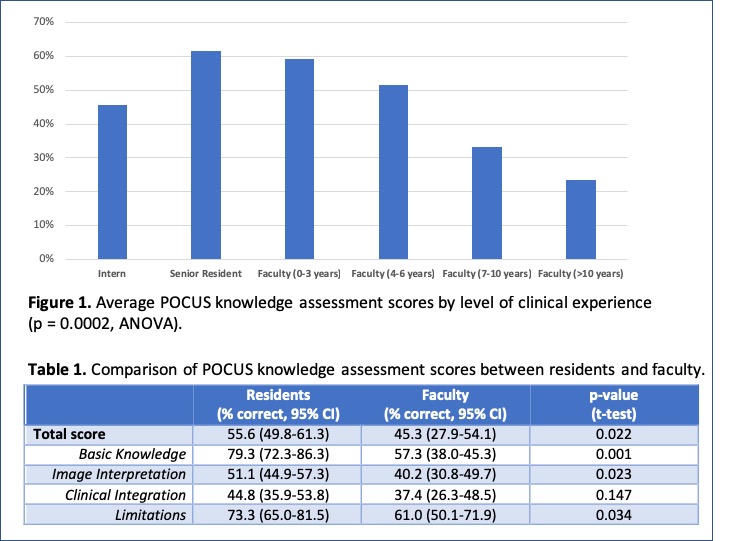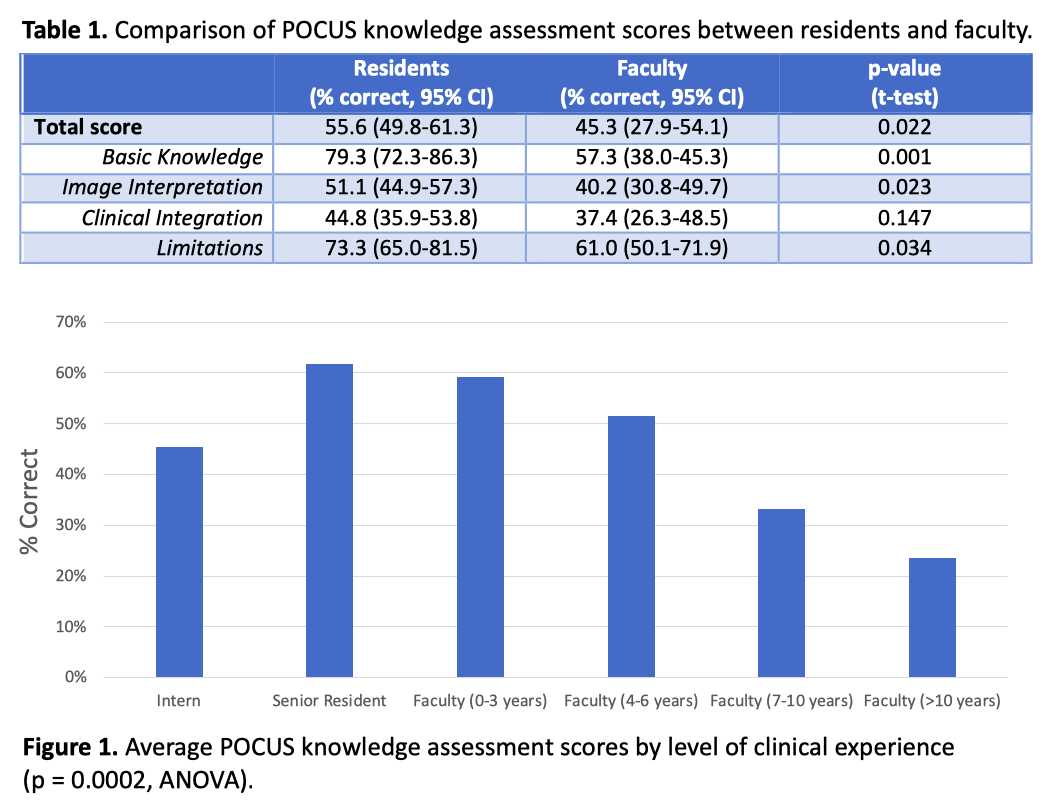Background: Point-of-Care-Ultrasound (POCUS) is increasingly recognized as a useful diagnostic tool in hospital medicine. US-based resident physicians are increasingly trained in the use of POCUS, but education and training for hospitalist attendings may lag behind creating a potential safety gap in supervision. We developed a test assessing knowledge of routine applications of POCUS used in hospital medicine and compared attending hospitalist and resident physician performance at a single academic teaching hospital.
Methods: Experienced POCUS faculty developed a 15 item test designed to assess the application of POCUS in hospital medicine practice. The test focused on four domains of use: basic knowledge, image interpretation, clinical integration, and understanding of limitations. The test questions were developed to address common use-cases for POCUS in hospital medicine, and to be performed in a short time frame (<10 minutes). An invitation to complete the test was sent by email to all internal medicine residents (n= 180) and all hospital medicine attendings (n=97). Each question included an option “Not sure” and respondents were instructed to not guess. Test results (% correct) were compared for attendings and residents using unpaired t-tests and analysis of variance (ANOVA).
Results: A total of 58 residents (32% response rate) and 41 (41%) attendings completed the test. The mean resident score was 55.6% (49.8 – 61.3 95% CI) and mean faculty score was 45.3% (27.9 – 54.1 95% CI) with a mean difference of 10.3% (0.32 – 20.3 95% CI, p = 0.022). Faculty performed significantly worse than resident physicians in the realms of basic knowledge, image interpretation, and understanding of limitations (Table 1). Additionally, respondents scored significantly different when analyzed by level of clinical experience. Interns scored a mean of 45.5%, senior residents 61.7%, faculty of 0-3 years of experience 59.3%, 4-6 years 51.6%, 7-10 years 33.3%, and faculty with >10 years of experience, a mean of 23.6%, p < 0.001 (ANOVA, Figure1).
Conclusions: Our test revealed that, while resident physicians at our institution have limited knowledge and require supervision, our hospital medicine faculty had a significantly lower baseline knowledge than the same residents they supervise. Specifically, hospitalist were more deficient in domains of basic knowledge, image interpretation, and importantly, understanding of limitations. Hospitalists more recently out of training were seen to score higher than those with more attending experience, which may reflect the recent wave of POCUS training in internal medicine resident programs. As resident physicians continue to gain valuable new skills in POCUS, this data argues for comprehensive faculty POCUS curriculum with an emphasis on appropriate use, knowledge of limitations, and supervision to address and prevent this supervision safety gap.


